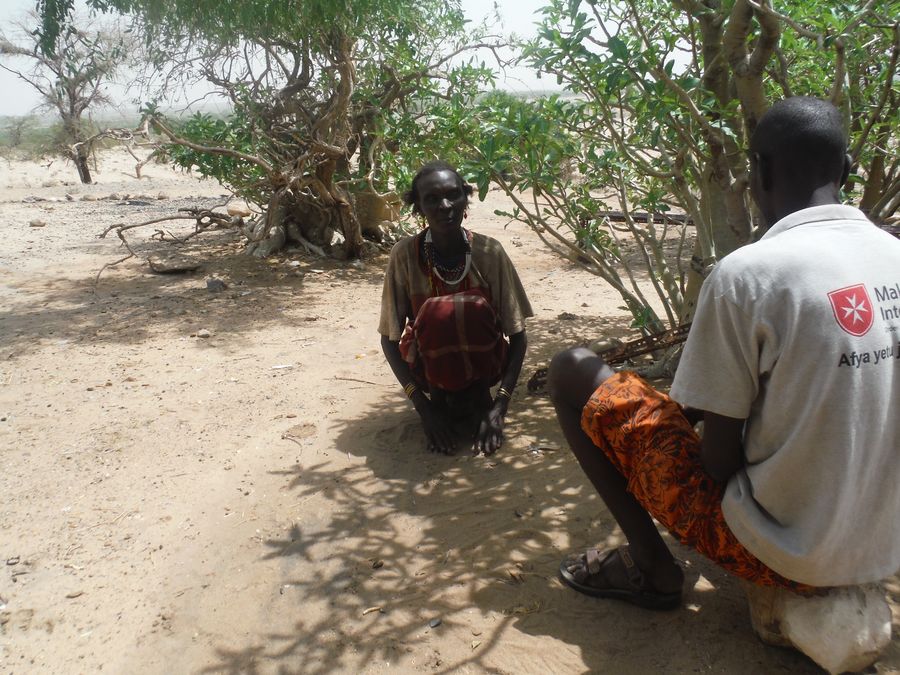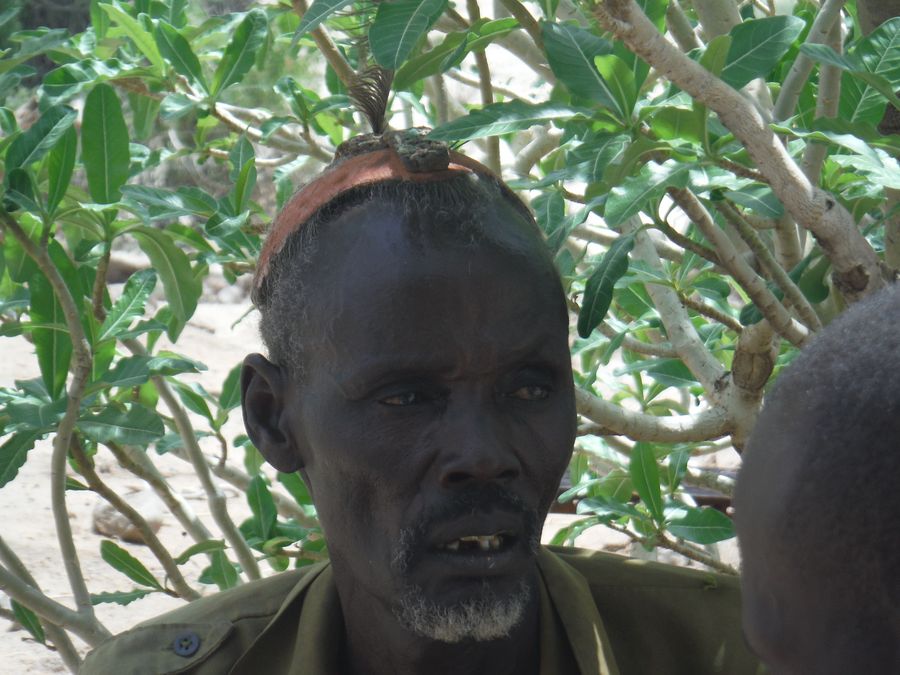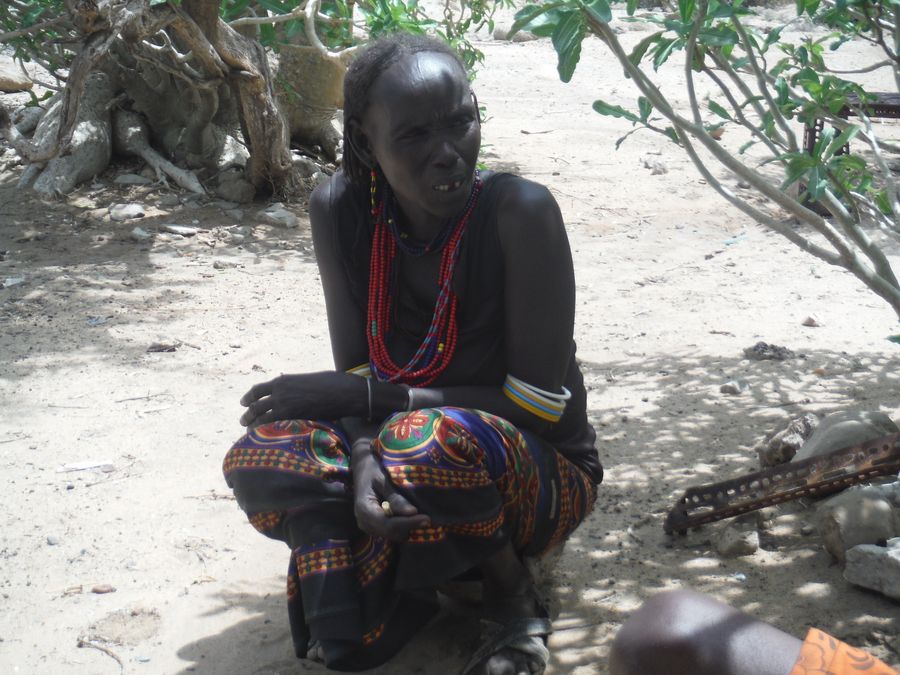"It feels like the end of the world"

Ileret is located on the shores of Lake Turkana, in the drought-stricken region of northern Kenya, a three-day journey away from the nation’s capital Nairobi, and just a few kilometers from the boarder to Ethiopia. There are hardly any visitors coming to this village; it is dusty, and at present more than usual. Rainfall has been poor in the past eighteen months, and 80 per cent of livestock have died as a result of the drought. For the local residents whose livelihoods depend on cattle herding, this is a tragic situation. Since there is hardly anything growing in Ileret, farming would be pointless when the rains come. Climate change is increasingly having its toll on the 23,000 Dassanech people living in this region. As most of the wells in this reason are dried up, Malteser International distributes water to the villages using water tanker trucks so that people can at least still provide themselves with a ration of drinking water.
The situation is however becoming more and more critical. Sieso Anyder is 33 years old, and has enjoyed living here for the past 14 years. "It was never this bad.” she says. “Almost all of our animals have died. We have to travel further to get water, and there are no more pastures for the animals. It feels like the end of the world.”

46-year-old James Shanbule is also a resident of Ileret, and has also been hit hard by the effects of drought. Before the drought set in, he had three wives and eleven children. After most of his livestock died as a result of the drought, two of his wives left him as he could no longer provide for his family. “The drought has already claimed one of my children.” he says “It is incredibly hot, and there is hardly anything to eat or drink here. My children have become very weak.” The situation has become worse in the past six months. 2.7 million lives are directly threatened by the situation in Kenya, leading the president to declare the drought an emergency. Wherever the resources become scarce, the struggle for survival becomes harder. Not only do families separate, in the hope of coping better on one’s own. Communal conflicts over remaining water reserves and grazing areas could also arise, especially ethnic groups are mostly heavily armed. To prevent this, Malteser International carries out conflict management trainings for the people in this region.

A distressed Maabat Lobwangole shares her experience. "Many men run away, and abandon their families. I have to walk for four hours to get to the nearest well containing water. My mother-in-law died when she became too weak. The health of my children is getting worse. I can barely give them milk, because almost all my animals are dead, and the few remaining have not produced milk in a very long time.
“Overshadowed by the crisis in the Middle East, a disaster has loomed for some time in parts of Africa because of the increasingly devastating drought. The people are in need of urgently support to ensure that they do not starve,” says Roland Hansen, Africa Team Leader at Malteser International.
Read more about our projects in Kenya
(February 22, 2017, Katharina Kiecol)








